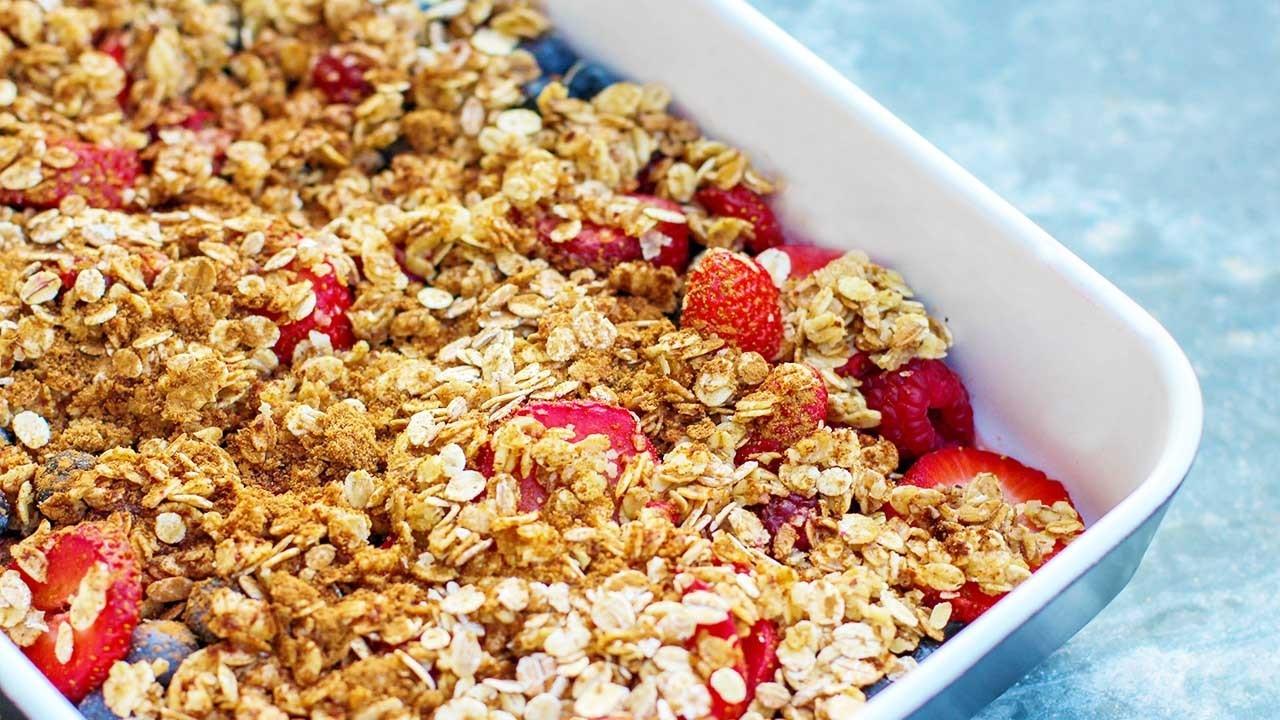How to Eat 30g of Fibre A Day. Podcast Episode 20.

Recent Research Shows that Eating Lots of Fibre Decreases All-Cause Mortality
The paper “Carbohydrate quality and human health: a series of systematic reviews and meta-analyses” was published in the Lancet.
It showed that eating 25-30g of fibre a day decreases your risk of dying from all causes.
To quote from the study:
“Observational data suggest a 15–30% decrease in all-cause and cardiovascular related mortality, and incidence of coronary heart disease, stroke incidence and mortality, type 2 diabetes, and colorectal cancer when comparing the highest dietary fibre consumers with the lowest consumers.”

Some of the Benefits they Found Included Lower Body Weight
“Clinical trials show significantly lower bodyweight, systolic blood pressure, and total cholesterol when comparing higher with lower intakes of dietary fibre.“
“Risk reduction associated with a range of critical outcomes was greatest when daily intake of dietary fibre was between 25 g and 29 g.”
SIGN UP FOR THE HANDOUT
You can sign up here (it's now housed in the "VIP area" so if you're already a member you already have access.)
There Were Added Benefits If You Ate 30g or More
“Dose-response curves suggested that higher intakes of dietary fibre could confer even greater benefit to protect against cardiovascular diseases, type 2 diabetes, and colorectal and breast cancer.”
In short, eating fibre is good for us. But how do we manage to consume that much each day?
We could just eat 7 apples but ideally we want to get our fibre from a variety of sources.
Soluble and Insoluble Fibre.
Soluble fibre dissolves in water and forms a gel. Found in apples, oatmeal, nuts, berries. Lowers cholesterol. Doesn’t spike your glucose levels much. Helps with weight loss and bowel movements.
Insoluble fibre doesn’t dissolve in water. The woody stuff! It is a “bulking” agent. Good for keeping you regular, weight loss and to give your biome a good environment.

Foods High in Fibre
- Fruit and vegetables. At every meal. Cooked fruit. Frozen fruit. Replacements for refined carbs. E.g. cauliflower rice, courgette spaghetti. Eat the stalk too!
- Lentils and legumes. Dal, hummus and sprouted lentils and legumes are my favourites.
- Whole grains e.g. spelt, quinoa, bulgar wheat.
- Nuts and seeds. Especially pumpkin seeds with the husk on. (If you buy a whole pumpkin, you can roast them. Yum!)
Some Tips to Eat more Fibre
- Fruit and veggies at every meal.
- Cook up fruit and veggies that are a bit old.
- Frozen fruit and vegetables are great when you can’t get them fresh.
- Replace starchy carbs with vegetables. E.g. cauliflower rice or courgette spaghetti, cannellini bean mash.
- Slow cooker dals are great for busy people.
- Hummus is an easy dip. Eat with vegetable sticks.
- Whole grans (instead of wholemeal flours) are easy and full of fibre.
- Use nuts in your cooking. Or eat as a snack.
- Pumpkin seeds with the husk on are a MEGA source of fibre.
- Make small changes. And keep going!
Article: https://www.healthline.com/nutrition/22-high-fiber-foods#section21

Author Bio
Dr Orlena is a health coach. She helps busy mums go from "I can't lose weight" to feeling fit and fabulous. Find out more about her here.



